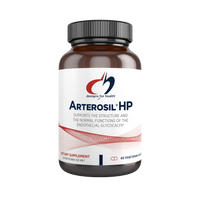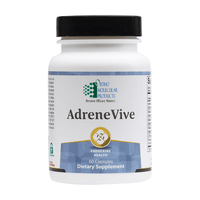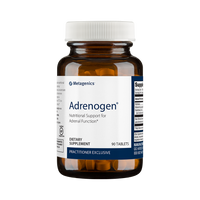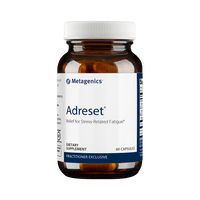How important is fish oil?
Omega-3 fish oil supplements are among the most popular supplements in the United States.
Look through any health magazine and you are bound to find an ad for a fish oil product that touts various benefits, such as "Good For the Heart", or "Better Brain Health", or "Boosts Immune System" but does the science support claims like these or are they mostly hype?
Fortunately for us, the science behind fish oil is just as exciting as the hype.
What is Fish Oil?
Fish oil is extracted from the tissues of fish that contain omega-3 fatty acids. Fish do not actually produce omega-3 fatty acids on their own, but accumulate them from algae. Fish oil is so highly regarded because it contains large amounts of the two most desirable types of omega-3 fatty acids - eicosapentaenoic acid (EPA) and docosahexaenoic acid (DHA).
Just like fish, our bodies can't make omega-3 fatty acids on their own, so we must get them through food and supplementation. Our dietary consumption of omega-3s comes from both animal sources, such as fish or krill, and plant based-sources, like walnuts, flax or chia seeds. The problem with plant-based sources is that they mostly give us an omega-3, called alpha-linolenic acid (ALA), which is then inefficiently converted into EPA/DHA by the body. Fish oil is a supplement that serves as a convenient way to provide our body with the most absorbable and useful kinds of omega-3 fatty acids.
What Do Omega-3 Fatty Acids Do?
Omega-3 fatty acids are required throughout the body for a wide array of essential functions. They play a key role in cell membrane health and development and give the body the materials it needs to make hormones that do everything from regulating blood clotting to the contraction and relaxation of artery walls.
A recent study published in The British Journal of Cardiology found populations that eat EPA/DHA-rich fish also have lower rates of coronary heart disease and sudden cardiac death. Perhaps the most important role for omega-3s is reducing harmful inflammation, the kind that isn't healing wounds or infections but is instead damaging healthy cells, within the body. Although EPA and DHA work together, they each have their own unique actions and purposes.
DHA is an essential building block in the brain for neurological and visual development and, as the most abundant fatty acid in the brain, adequate amounts of DHA are needed throughout infancy and adulthood for optimal mental function. Research from the journal Pharmacological Research confirms DHA's role in brain health and concludes that DHA is required for the maintenance of normal brain function and that decreases in DHA are associated with depression and cognitive decline.
EPA is the part of omega-3 fatty acids most responsible for the anti-inflammatory benefits. A recent study from Brain, Behavior and Immunity demonstrated how EPA boosts the body's immune response by reducing the amount of inflammatory proteins in the body and helps the body cut off inflammation once an infection has been healed and the inflammation is no longer needed. This is important due to our excessive consumption of another kind of fatty acid, omega-6.
What Are the Differences Between Omega-3s and Omega-6s?
EPA and DHA work together to even the body's ratio of fatty acids by giving us more of the rarer omega-3s to balance out the more abundant omega-6s. Omega-6 fatty acids are similar to omega-3s in that they are essential to our health and the body cannot make them on its own. Like omega-3s, omega-6s give your body the materials it needs to perform essential cellular and biological processes. Omega-6s help stimulate skin and hair growth, maintain bone health, and are necessary for proper metabolism and maintenance of the reproductive system.
Omega-6s also help with wound healing by supporting the creation of inflammatory hormones - an important part of the immune response. By evenly balancing omega-6s with -3s, we get the positive benefits of both while the anti-inflammatory omega-3s make sure that inflammation from omega-6s is held in check. A study published in Biomedicine & Pharmacotherapy was just one of many that have confirmed the importance of balancing omega-3 and -6 levels by finding that getting more -6s than -3s leads to runaway inflammation, cardiovascular disease, cancer, and autoimmune diseases.
It is easier said than done to keep our omega fatty acid levels in balance, though. Before the industrial revolution, our ancestors ate a balanced ratio of about 1:1 omega-6s to -3s since their diets consisted of a lot of omega-3-rich fish and nuts. After the revolution, our intake of omega-6s skyrocketed since people started consuming more grains and vegetable oils.
Our top pick is...
Health Library
- Allergy & Sinus
- Anti-aging Support
- Blood Pressure
- Blood Sugar
- Bone Health
- Brain & Neurological
- Cardiovascular
- Cholesterol
- Circulation
- Cold & Flu
- Detoxification
- Energy & Performance
- Eye Health
- Food Intolerances
- General Wellness
- Hormone Support
- Immune Support
- Intestinal & Digestion
- Joint Pain & Inflammation
- Kidney & Urinary
- Lactose Intolerance
- Men's Health
- Menopause Support
- Muscle Support
- Relaxation & Sleep
- Senior Health
- Skin Support
- Stress Management
- Weight Management
- Women's Health

















 a
a